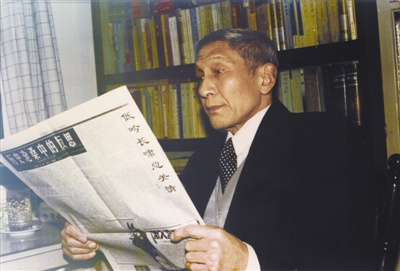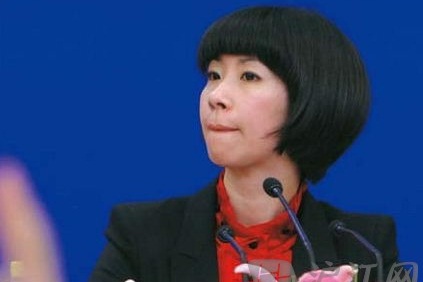Lesson at the Laverie
The elderly woman startled me. I’d just begun tossing my dirty clothes into a washing machine inside Laverie Automatique, a not-too-chic Laundromat in the French ski town of Chamonix, and I was absorbed in the task. I’d noticed the woman when I walked in. She had short gray hair, a warm, weathered face and big round glasses that dwarfed dark eyes. She’d been reading on the lone bench next to an empty laundry bag and a whirring machine, and she’d looked tired. Then, to my surprise, she was suddenly standing behind me, rattling off something in French. Judging by her hand gestures, which included arms waving and fingers pointing, her message was of great importance. Unfortunately, I had confined my foreign language studies to Spanish, and I didn’t understand a word.
“Parlez-vous anglais, madame?” I mustered, looking her way as I tossed a sock into the machine.
“Non.”
“Espagnol?”
“Non.”
I grinned, shrugged and threw my hands in the air to respectfully convey my language deficiency.
“Breetish?” she asked in a halting French-English hybrid.
“American.”
She smiled and planted herself back on the bench. I imagined she had tired of fighting the language barrier and had given up. I tossed the last of my socks into the washer. But then the woman began anew. She spoke slowly this time, laboring to make herself understood. She furrowed her brow. She tilted her head. When she finished, she jerked her head forward, as if to punctuate her remarks with an exclamation point.
I shook my head helplessly, unsure of what to do or say. I knew nothing about this woman, but I was moved by her intensity and wanted to understand what she was saying. Maybe she was happy because her only daughter had just given birth. Perhaps her husband had died and she needed a compassionate ear. Or maybe she had simply discovered a fabulous fabric softener, new-and-improved, and she wanted to spread the good word.
I recalled my first trip to Europe as a wide-eyed 22-year-old, eager to engage anyone I could in conversation. Time and again, in France and Germany and Austria and Czechoslovakia, I ran up against a seemingly impenetrable language barrier, and it filled me with frustration. I cursed my parochial American education, and when I tired of that, I went even further. “Why can’t we all just speak a single language?” I wrote in my journal. “I don’t care which one, but let’s pick one. The world is too small these days for so many languages.”
Almost a decade later, having devoted many months to improving my Spanish skills but still lacking all but the most basic French phrases. I was equally frustrated. What was she saying? I settled on the same disheartening conclusion I had arrived at all too often during my travels abroad: I would never know.
I tried to decipher a hand-written sign on the wall explaining how to procure a cup of powdered detergent. Before I could dig for my francs, however, the woman leapt to her feet and grabbed her own bottle of liquid soap. To my surprise, she popped open the detergent lid on my machine, held the bottle aloft and poured in a big glob, all the while muttering something in French.
“Merci beaucoup,” I said.
She nodded.
I dropped several francs into the coin slot and the machine came to life. I sat down beside her.
“Je m’apelle Jim,” I managed. “Et vouz?”
“Jeanine.”
“Chamonix?” I asked, wondering if she lived in town.
“Non,” she said. “Lyon.”
I pointed to myself.
“Los Angeles.”
She grinned.
We struggled through a few questions and answers. I heard her repeat the phrase “mon fil” several times, which my dictionary defined as, “my son.” As best I could determine Jeanine’s son was a skier who lived in Chamonix, and she was visiting him for a few days. She thought that I looked like him. Indeed, when she pulled his wet Levis from the washer, I saw they were my size: 32-34. I pointed to my own waist and offered a Spanish word, hoping the French might be similar.
Jeanine laughed, nodding as if to say that she understood. Her eyes gleamed. We grew quiet, both, I think, weary from the labored exchange. Time slowed. Through the front window, we watched women and men stroll past snowboard shops and fondue joints, bundled in scarves and fleece sweaters and wool caps against a late-afternoon chill that had settled over the valley. Hours earlier, I’d looked up from Chamonix’s main street to see Mont Blanc, the Alps’ tallest mountain, shrouded in mist. Now, I imagined a heavy snow falling on its brooding, icy reaches. I found myself smiling, glad to be doing laundry inside Laverie Automatique, sharing part of the afternoon with Jeanine, whoever she was.
When my machine came to a halt, I began pulling damp clothes from the washer and transferring them to a dryer across the room. On my second trip, trying to carry too big a bundle, I dropped a pair of underwear. Jeanine shot me a sympathetic glance. Before I could reach for the shorts, she popped up and grabbed them, happily tossing them into the dryer with a flip of her wrist. As if that weren’t enough, she grabbed the last soggy handful from my machine, completing the job. I couldn’t hold back a big grin.
“Merci,” I said.
She smiled and nodded.
Jeanine’s dryer soon sputtered to a stop. One by one, she removed the shirts and pants, folded them and stacked them carefully in her bag. I pointed to the pile and offered to help, but she waved me away. Moments later, with her laundry bag full, she tugged on her overcoat.
I wanted to tell Jeanine that she was a generous soul, and that, even if it was nothing to her, I appreciated the simple warmth that she extended to me. I wanted to wish her well, and to ask her to give my best to her son. I wanted to explain that doing laundry abroad had never been quite so much fun. I knew my French would never cut it.
Yet I wasn’t filled with the same frustration I’d felt so many times before. Jeanine didn’t let our language differences get in the way of her generosity. In fact, she seemed to understand the old axiom about actions speaking louder than words, louder than incomprehensible foreign words, even when that meant picking up a stranger’s underwear. I hadn’t learned much of Jeanine’s biography, I realized, but I had learned a whole lot about something that transcends language, something more important: heart.
I stood and smiled and offered Jeanine a handshake.
“Merci beaucoup,” I said.
Jeanine smiled.
“Merci,” she said. Adding a warm “au revoir,” she strolled out of Laverie Automatique, into the cool Alpine air.
洗衣店的故事
当时我身处法国的滑雪小镇坎姆尼克斯,在一家很普通的,叫莱弗瑞的自动洗衣店里面,正当我专心地往洗衣机里扔脏衣服的时候,一个老婆婆让我突然吓了一跳。其实在我一进门的时候我就留意到了她。 她梳着短短的灰发,有一张和蔼而饱经风霜的脸,圆圆的大眼镜遮住一双黑眼睛。当时她坐在洗衣机旁的椅子上看书,身边摆着一只空的洗衣篮,神情略显疲倦。然后,让我非常意外的是,她突然站到了我身后,叽里呱啦地说了一长串法语。从她指手画脚的手势中可以判断她在说一些很重要的东西。可偏偏我只懂西班牙语一门外语,她说的我完全不知所云。
“夫人,请问您会说英语吗?”我一边把一只袜子扔进洗衣机,一边憋出一句法语问道。
“不会。”
“西班牙语?”
“不会。”
我笑一笑,耸耸肩,很有礼貌地摊开双手,表示我无法用法语和她沟通。
“你是英国人?”她不肯定地问道,说的英语明显夹着法语的口音。
“我是美国人。”
她笑了笑,重新坐了下去。我猜她曾经想试图打破语言的隔阂,可最终放弃了。我把最后的几双袜子全部扔进了洗衣机。这时候老婆婆又说话了。这回她说得很慢,似乎很努力地想让我听明白。只见她又是皱眉、又是歪头,说完了还猛地把头往前一伸,仿佛在为她的发言打上个感叹号。
我无助地摇摇头,不知道说些什么好,也不知道该怎么办。我对她一无所知,可却被她说话的热忱所感动,也很想弄明白她到底想说什么。或许她的独生女儿刚给她生了个小外孙,或者她的丈夫刚去世,她需要别人的聆听,又或是她刚发现了一种新改良的衣物柔顺剂,她只是想把它介绍给别人。
我不由想起自己第一次游历欧洲的经历,当时的我只有22岁,对一切充满好奇,渴望与任何碰到的人进行交谈。可在法国、德国、奥地利和捷克,我一次又一次地面对无法逾越的语言鸿沟,无法交流的苦恼让我沮丧不已。为此我诅咒狭隘的美国教育,在自己心烦意乱的时候,我还在日记里写道:“为什么我们就不能说同一种语言呢?任何一种都行,随便选好了。现代的世界太小,容不下这么多语言。”
差不多十年过去了,期间我足足花了好几个月的时间去提高自己的西班牙语水平,可现在需要的却是法语,而要命的是我连最基本的日常用语也不会。我和那老婆婆一样沮丧,她到底在说什么?这就是我在旅途中经常碰到的问题,我只能垂头丧气地接受这个事实――我永远也不知道。
我抬头研究起挂在墙上的一幅手写指示牌,上面有获取洗衣粉的说明。正当我准备往机器里面塞硬币的时候,那老婆婆一把抓起她的洗衣液走了过来。只见她拧开我洗衣机加洗衣粉的小孔,将洗衣液高高举起,倒了一大堆洗衣液进去,嘴里还咕咕唧唧地说着一串法语。
“非常感谢,”我说。
她点点头。
我投入几枚硬币,让洗衣机运转起来,然后在她身边坐了下来。
“我叫吉姆,”我费力地挤出一句法语,“你呢?”
“珍妮。”
“本地人?”我问,想知道她是不是住在这个镇上。
“不,”她说:“在里昂。”
我指着自己,说:“洛杉矶。”
她笑了。
我们很费力地问了对方几个问题,我听她重复几次地提到“mon fil”,查了字典才知道是“我儿子”的意思。如果我没理解错的话,珍妮的儿子是个滑雪爱好者,就住在坎姆尼克斯镇上,她从里昂来看她的儿子。她觉得我和她的儿子长得很像。的确是这样,当她将她儿子的利维牌牛仔裤取出来的时候,我发现裤子的尺码是32-34,那也正是我的尺码。我指了指我的腰,然后用西班牙语说了句“一样”,希望法语的发音和西班牙语的发音也一样。
珍妮笑了起来,连连点头,仿佛在说她听明白了,眼睛还闪着兴奋的光芒。然后我们都安静了下来,我想大概是因为大家都吃不消这样费力的交流方式吧!时间仿佛慢了下来,透过窗户我们可以看见滑雪用品商店和干酪店门口的人来人往,大家都穿着厚厚的羊毛衣,戴着帽子和围巾来抵挡黄昏前夕山谷中的寒意。就在几个小时前,我站在坎姆尼克斯的主要大街上,仰望云雾环绕中的阿尔卑斯山最高峰――勃朗峰。我想象着在连绵的雪峰上正下着漫天大雪。想着想着我就笑了,为自己能够在坎姆尼克斯小镇上的洗衣店里与珍妮邂逅而高兴,管她到底是谁。
洗衣机停下来之后,我把里面的衣服拿出来送到另一边的干衣机里。可能因为一次拿得太多的缘故,不小心落下一条内裤。珍妮同情地瞥了我一眼,赶在我之前把裤子捡起来,很快地把它扔进干衣机里。接着还帮我把洗衣机里最后一批衣服拿出来送入干衣机。我忍不住笑了起来。
“谢谢。”
她笑着点点头。
很快珍妮的干衣机停了下来。她把衣服一件件地取出叠好,小心地放进袋子里。我示意要帮忙,但她摆摆手拒绝了。过了一会,提着满满的洗衣袋,她伸手去拿大衣。
我想告诉珍妮她是一个很大方的人,很感激她给我带来的温暖,尽管那对她来说可能不算什么。我还想向她儿子表达最美好的祝愿。在异国他乡的洗衣店里,我从未感到如此地愉快过。但是,我知道我所会的语言不足以表达我的心意。
但是这一次,我不会和以前一样感到沮丧。语言的隔阂并没有妨碍珍妮表达她的善意。事实上,她仿佛深谙事实胜于雄辩的道理,知道行动可以跨越陌生的外语,哪怕是帮一个陌生人拾起他的内裤。我并不太了解珍妮的过去,但是我却从她身上学到有些东西是可以超越语言,也是更重要的,那就是心意。
我笑着站了起来,并伸手出去和珍妮握手告别。
“非常感谢,”我说。
珍妮笑了笑。
“谢谢,”她说。随着一声温暖的“再见”,她离开了洗衣店,步入阿尔卑斯山的寒意中。















